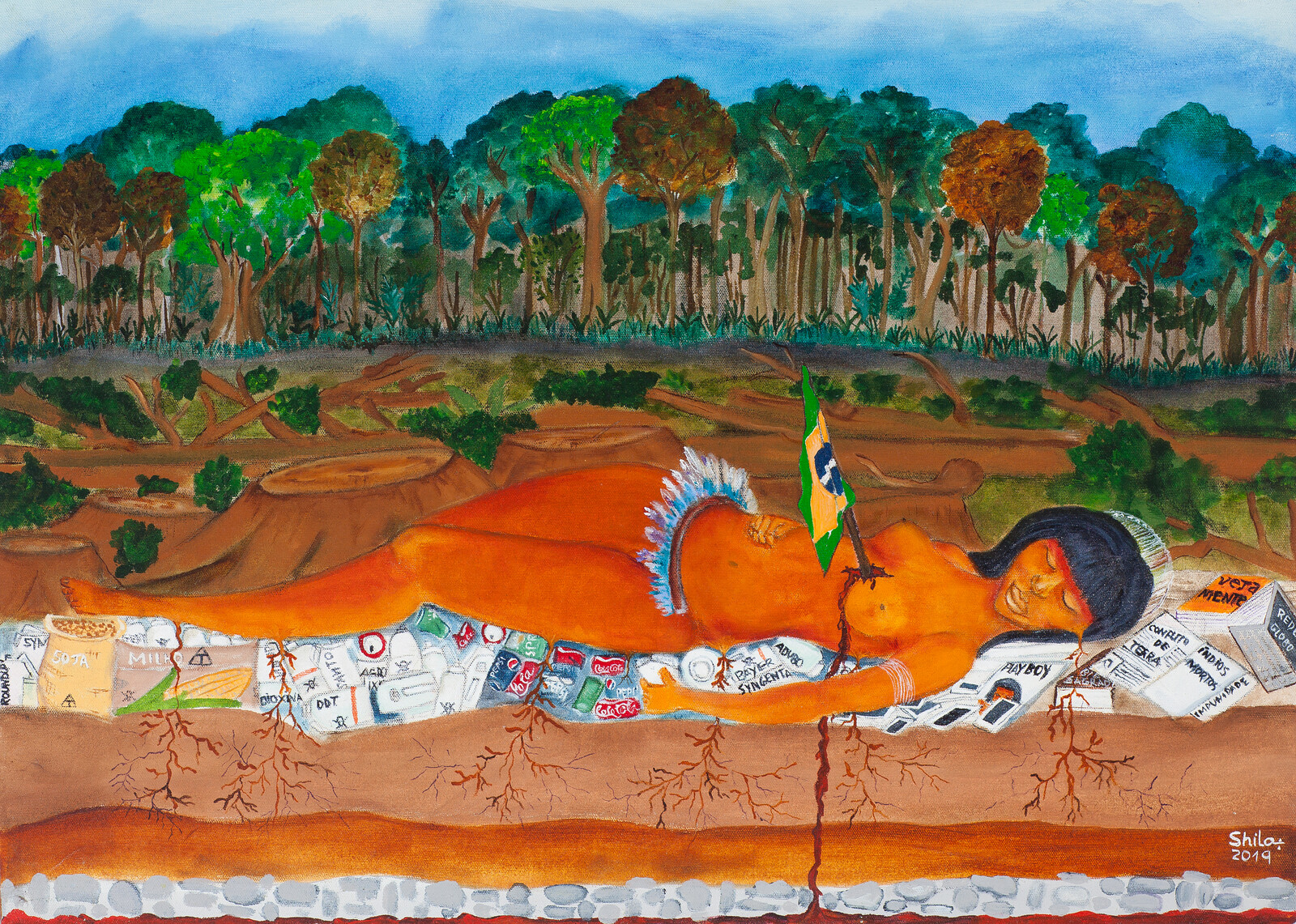November 28, 2020–July 25, 2021
R. Ipiranga, 155 - Centro
Piracicaba-
13400-480
Brazil
The Bienal Naïfs do Brasil [Biennial of Naïve Art of Brazil], an ongoing project for the valorization of Brazilian cultural production of popular roots, will open the exhibition of its 15th edition to public visitation on the coming November 27. Held by Sesc São Paulo since 1992 at its unit in the city of Piracicaba, Brazil, the Bienal has gathered artists from different regions of the country, contributing to the visibility and mapping of artworks of a popular character in the contemporary scene. During its nearly 30 years of life, the project has become a benchmark in regard to providing access to creative expressions of a vernacular nature, raising awareness about them, and encouraging their study.
Curated by researchers Ana Avelar and Renata Felinto, this edition of the event involves a reflection based on the juxtaposition of two different conceptual perspectives: that of Ailton Krenak—a thinker who reflects on the model of life of indigenous peoples in the Brazilian territory in relation to the Western capitalist model—and that of Arthur Danto, a neo-Hegelian thinker, interested in revising the ontological conception of art in the contemporary scenario while pointing to an exhaustion of the idea of a unified historical narrative. Titled Ideias para adiar o fim da arte [Ideas to Postpone the End of Art], the current edition of the Bienal Naïfs do Brasil combines dissimilar narratives to encourage the formulation of new epistemologies for the generation of knowledge. The curatorial project thus links together different fields of production and thought in order to shed light on the plurality and diversity that marks the creative processes in Brazilian culture.
Some of the artworks featured in the show were chosen from an open call for entries, while others are by artists specifically invited to participate. According to the curators, the selection of artworks for this edition of the event was based on the criterion of representativity. The background of the artists was observed, with an eye to the regions where they work, their ethnic-racial declarations, their ages, their subjects and their work materials. The process allowed for the selection of more than 100 artists, whose works are seen to share lines of questioning in relation to the show’s curatorial axes. These shared lines include the discussion about the natural environment and the concern for man’s relationships with nature; the presence of the female as a social force, divinity and sacred figure in various communitarian and religious contexts; human rights abuses and the historical structural violences that still configure our society; the spaces of collectivity and sociability in the environments of rites, festivals and ceremonies; and the debate on objectivity and utility, in a space where industrial and artisanal premises go hand-in-hand.
The Bienal’s 15th edition honors Lélia Coelho Frota and Ana Mae Barbosa, Brazilian woman intellectuals whose research considers the artist as a person, looking at artistic production in a more human and plural way. Also honored are Leda Catunda and Sonia Gomes, with pioneering works that dialogue with the universe of naïve art. In addition, the September show presents the artist’s studio as a place of creation with multiple possibilities, bringing portions of the studios of the artists Carmela Pereira, Raquel Trindade and Sanipã into the exhibition space.
Throughout these years of the Bienal’s ongoing existence, Sesc São Paulo has contributed to the structuring of a system of popular arts, based on the elaboration of a narrative centered on these expressions, while promoting platforms for debate and theorization, considering how the so-called naïve art production has been historically sidelined by the institutional discourses and venues. To this end, by shedding light on the wide-ranging legacy of traditional culture, by investigating the virtuosity and skill of popular crafts, and by recognizing the aesthetic power of investigations outside the Eurocentric canons or specialized artistic codes, the Bienal Naïfs do Brasil has provided repeated access to a material wealth from a deep Brazil.
At this moment, in-person visitation to exhibitions at units of Sesc São Paulo is only possible through previous scheduling online, and follows the protocols established by the local authorities for the combat of COVID-19.


